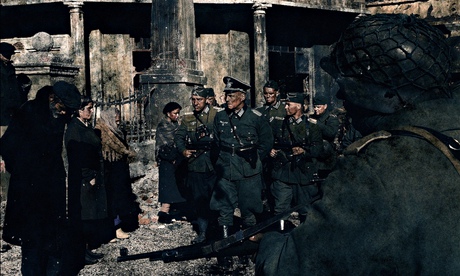
There are novels I have re-read after 30 or 40 years that have shocked me with ideas which evidently made such a strong impression they ceased to be someone else’s thoughts and became my own. After a lifetime of reading you become formed by books; you are partly an accumulation of others’ ideas. Every time I re-read Virginia Woolf’s Mrs Dalloway I see how this brief but enormously influential novel, first read in my teens, created in me the sense of lightness and excitement when walking down a London street, or how the phrase “among the cabbages” would resonate as a fragment of a sentence about memory and longing.
But only one book had such a decisive impact that I can date to it a profound alteration in my worldview and even behaviour. I read Vasily Grossman’s Life and Fate in 2003. Like a handful of other people a decade ago, I felt that I held a samizdat; no one else I knew had ever heard of it. Grossman was referenced and footnoted in Antony Beevor’s Stalingrad and Berlin: The Downfall, both bestsellers of the 1990s. I am not an obvious audience for military history, but Antony and I had met on the management committee of the Society of Authors, and it seemed only polite to read each others’ books.
From Berlin, I moved on to Life and Fate. It took me three weeks to read it and three weeks to recover from the experience, during which time I could barely breathe. Grossman was a Soviet Jewish journalist who covered the battle of Stalingrad and the liberation of the Treblinka extermination camp. After the war he wrote this epic novel. Life and Fate is a Soviet War and Peace, in which every aspect of society radiates out from the central characters, Viktor Shtrum and his wife Lyudmila. Shtrum is a physicist and member of the academy of sciences; his wife’s first husband has been arrested during the purges; her son is a lieutenant in the army; Viktor’s mother, in the Nazi-occupied sector, is en route to the gas chamber. Dozens more interlinked people endure the war and its impact on ordinary and important lives, including those of Stalin and Hitler.
The novel is long, 871 pages in the Harvill edition, with a huge cast of characters that makes for a formidable challenge. Grossman was not a natural stylist – he wrote in journalistic prose; there is little lyricism. But because he writes of what he has seen firsthand, the images can be startling: “Blinking their scorched eyelashes, they forced their way back to the bunkers through the thickets of red dog rose.” He knows what people are thinking. In a scene of young soldiers at rest for a few minutes at the front, he takes us into their heads: one full of dire forebodings, another singing, one trying to identify a bird on a tree – soldiers dreaming of girls’ breasts, dogs, sausages and poetry.
When Grossman submitted his manuscript in 1960 he was told it could not be published for 200 years. Two years later he was dead of stomach cancer, his novel confiscated, “arrested” as he said, for he had assaulted Soviet totalitarianism. One must be careful not to confuse him with libertarians. Rather, Grossman saw the individual as a novelist does. “Human groupings have one main purpose,” he wrote, “to assert everyone’s right to be different, to be special, to think, feel and live in his or her own way … The only true and lasting meaning of the struggle for life lies in the individual, in his modest peculiarities and his right to these peculiarities.” The tolerance of difference is his message, not an assault on society or the state.
By the end of the novel, what you are left with out of the debris of Soviet Communism is something so banal it could be written on a greetings card: the individual, often random act of kindness – an old woman who picks up a stone to hurl at a captured German soldier and, for reasons she will never understand, replaces it with a piece of bread. People are placed in invidious situations, like Shtrum, cornered by Stalin. Few are heroes. But these acts of kindness recur throughout the novel, not in any context other than the spur of the moment. Kindness alleviates some of the horrors of war. In one brief moment a soldier thoughtfully removes a louse from his girl’s army jacket before kissing her.
Like many of my generation, I’d been shaped by ideas; by a number of -isms, socialism and feminism above all. I saw the world in terms of various us and them groupings. After reading Life and Fate they seemed to matter less. Grossman wasn’t advocating Christian saintliness, and was far from perfect in his own life. But if, even in the horror of war, you can alleviate suffering through some extraordinary action (volunteering to go to the gas chamber to hold the hand of a child so he won’t have to die alone), how easy might it be to behave with less anger, cynicism, irritation or sneery dismissiveness? And that’s what I have tried to do. Life and Fate is a daunting undertaking, but for those who finish it the experience is profound. Few novels that set out to change the world succeed; this one merely changed me.

